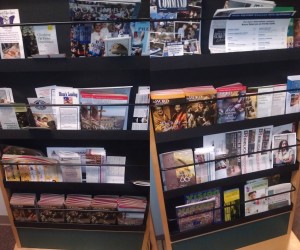A Visit to the Chaplain and a Debate
Recently a MAAF member visited the local chaplains office at an Army medical center. He visited the head chaplain and asked what he could do for an atheist.
He started by stating it depended on what the atheist wanted. He was clear that it his job encompasses the entire unit, but he didn’t make any outside references. He went into how America is a Christian nation, citing “95% are Judeo-Christian”, at which I gave into my urge to counter that about 20% are “none”. He said that the signers of the Declaration were ministers, and I responded that Jefferson and Madison were very critical of religion.
It may not have been apparent, but the initial contact was hedging about support and then belittling the nontheistic demographic with false demographics and preferred history. But the discussion continued into philosophy and secular areas:
We talked about how everyone asks three basic questions about how am I here, why am I here, and where I go. He asked if I had any religious discrimination. And I answered that I only had religious misunderstanding. In telling about that, I explained the difference between atheism and agnosticism. At the end he offered to loan me a book and I offered him 3 authors/titles in return. Overall he was very pleasant and approachable, and much of the god-talk diminished after he knew I was atheist.
So even though the progression continued and seemed pleasant, it ended with a clash of cultures… a desire on the part of the senior chaplain to share faith rather than to affirm and facilitate the beliefs of the soldier. This was couched in an ‘exchange’ but the outcome was a senior military officer and professional chaplain was engaging a junior noncommissioned officer in an argument about beliefs. Whatever was intended, and whatever cordial overtones there may have been, the outcome was no help and thinly-veiled evangelism.
The proper response, especially for an initial meeting should have been to draw from chaplain training on the nontheistic perspective to connect without causing offense, to offer atheist or humanist materials, and to refer the service member to like-minded organizations like the Central North Carolina Atheists & Humanists (CNCAH), MASH Ft Bragg, the American Humanist Association, the American Ethical Union, and of course, MAAF. The point is that there is no excuse for an atheist or humanist to leave empty-handed. The chaplain approached in this situation knows of local leaders and for some reason chose to withhold this information. The core issue is that the training on the nontheistic perspective is not offered by the military chaplaincy, so it is not surprising that this chaplain did not handle the situation appropriately. However, his willingness to turn the encounter into a debate is troubling even by chaplain standards. This article could have names of each person and locations, but this is representative of many issues not an isolated incident and should not be treated as such.

